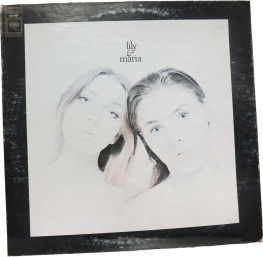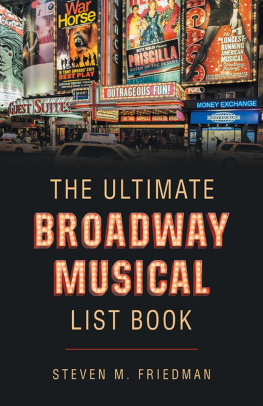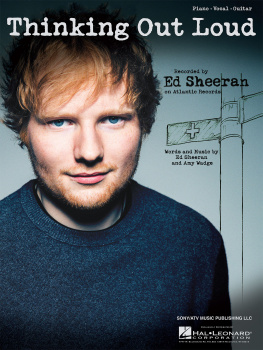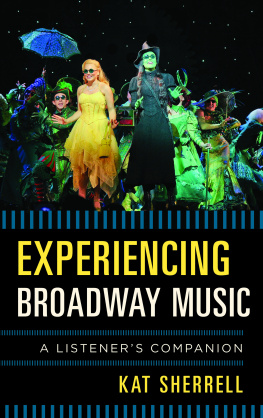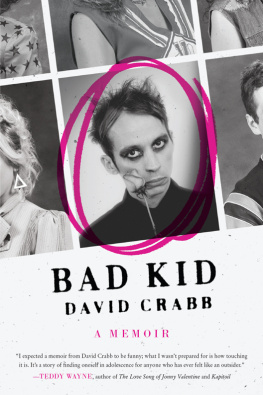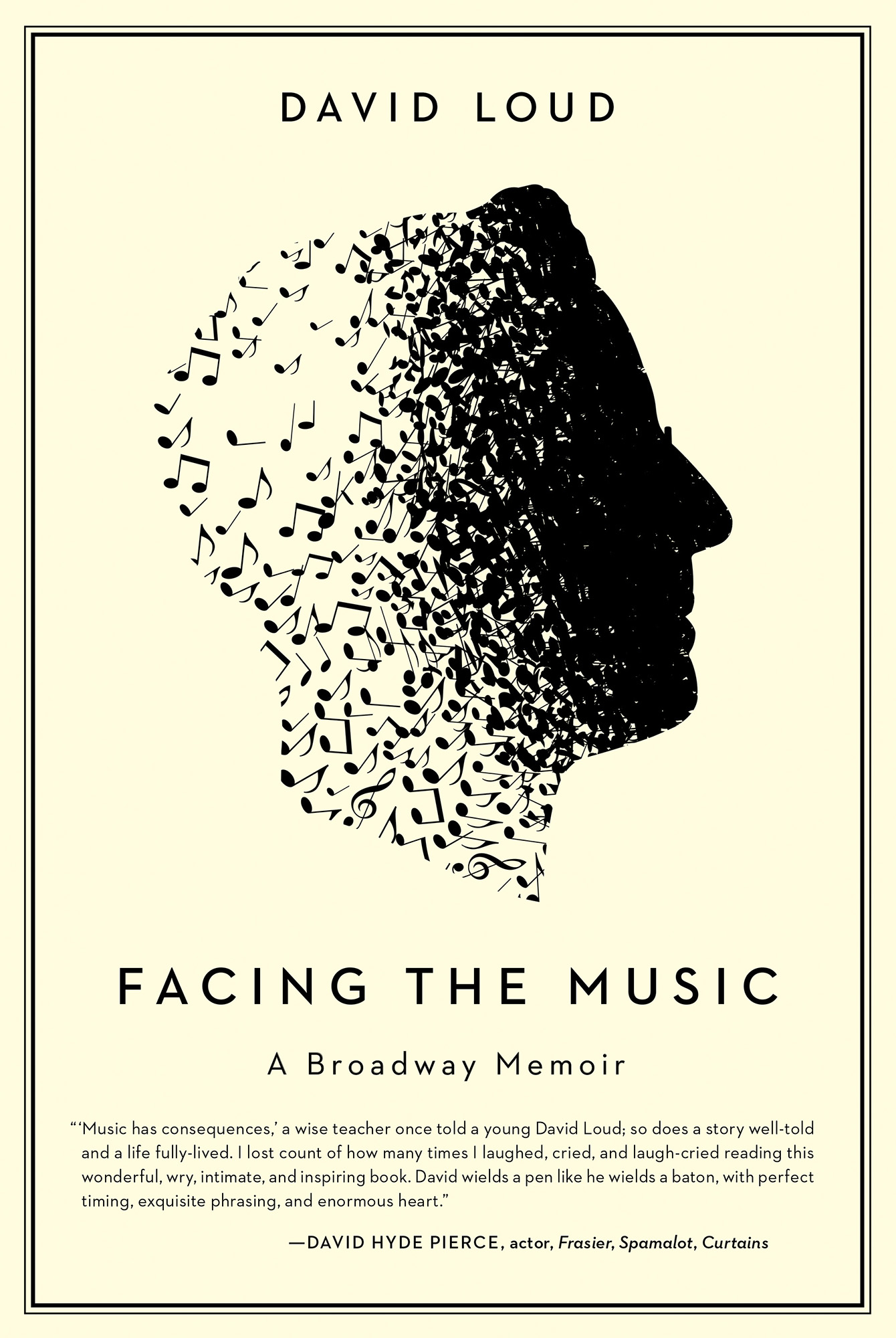Contents
Guide
David Loud
Facing the Music
A Broadway Memoir
Music has consequences, a wise teacher once told a young David Loud; so does a story well-told and a life fully-lived. I lost count of how many times I laughed, cried, and laugh-cried reading this wonderful, wry, intimate, and inspiring book. David wields a pen like he wields a baton, with perfect timing, exquisite phrasing, and enormous heart.
DAVID HYDE PIERCE, actor, Frasier, Spamalot, Curtains
For Pedro Porro

Regan Arts.
Copyright David Loud, 2022
All rights reserved, including the right to reproduce this book or portions thereof in any form whatsoever. For information, contact .
This book is a memoir. It reflects the authors recollections of experiences over time. Some names and characteristics may have been changed, some events have been compressed, and some dialogue has been recreated. Regan Arts is committed to publishing works of quality and integrity. We are proud to publish this book; however, the story, the experiences, and the words are the authors alone.
First Regan Arts hardcover edition, February 2022
Library of Congress Control: 2021943226
ISBN 978-1-68245-191-5 (hardcover)
ISBN 978-1-68245-192-2 (eBook)
Interior design by Beth Kessler, Neuwirth & Associates
Cover design by Richard Ljoenes
Back Cover Photo by Michael Brosilow
Jacket design and illustration by Richard Ljoenes
Back jacket photograph of David Loud by Michael Brosilow
Author photographs by Pedro Porro
Prelude : 2007

Where the hell is my music?
I was standing at the podium in an orchestra pit, a baton in my right hand, ready to begin. But due to a series of mishaps, there was no music on the music stand in front of me. It was the opening night of a new Broadway musical, Curtains, a cheerful murder mystery set in the hectic backstage world of a new Broadway musical.
I was the conductor of the musical, but I was also playing the small role of Sasha, the conductor of the musical-within-the-musical. I was wearing an elaborate set of tails, and my hair had been slicked back, 1950s style, by one of the shows hairdressers. The platform I was standing on was actually a motorized elevator lift, allowing me to rise into the audiences view to perform my lines and my song, then disappear back down into the pit.
I waited, listening to the murmurs of the audience mixing with the sounds of the orchestra warming up. It was disconcerting, staring at the empty wooden podium, where my score usually sat.
Curtains had been in previews for the last four weeks. Countless changes had been made to the show and to the score. Each cut, rewrite, and addition had to be copied into every musicians part and rehearsed. It had been an exhausting month.
That morning, I had asked a young music intern to copy a final set of corrections into my conducting score. Orchestra pits are cramped spaces, so he carried the large manuscript to a table in the orchestra locker room. For the past month, the shows orchestrator had been working at the same table, making his revisions during previews. When the intern finished, he left my score there with the orchestrators music, intending to return the score to my podium before the performance.
A N HOUR EARLIER , I HAD arrived at the stage door. My mood was bright. The long path to this particular opening night had been a singularly joyful journey. Bouquets of flowers, colorfully wrapped packages, cards, and telegrams spilled out of the dressing rooms into the narrow backstage hallways and staircases. Dodging clusters of balloons and elegant fruit baskets, I made my way up to my fourth-floor dressing room, where I discovered the young intern, wide-eyed and trembling.
I cant find your score, he blurted out.
The jubilant opening night soundtrack playing in my brain came to a screeching halt.
Ive been searching for it for half an hour, he added.
Hoping that I had misunderstood him, I asked quietly, My conducting score?
He looked frightened. Like he expected me to start throwing things.
My knees felt weak. I sat down. We both knew that there was no backup score.
I could cobble something together from the rehearsal piano book, he offered wanly.
It would only confuse me, I said.
None of this made sense. Who would take my score?
It has to be here somewhere, I said.
I interrogated the young intern and we retraced his every step.
The hallways and tunnels beneath the Martin Beck Theatre are filled with odd angles and mysterious doorways. We searched the pit and examined every nook and cranny we could access, to no avail. Our perplexed sleuthing was made more difficult by the constant stream of opening night gifts, notes from friends, and flowers being delivered to my small dressing room.
I made a decision, in the heat of the moment, not to broadcast my dilemma. A Broadway opening night is specialthe culmination of an arduous journeyand I didnt want it to become about me. But my mind was working overtime, alternating between numb resolve and breathless panic.
You know every note of this score, I told myself. Its going to be fine.
Youve never conducted this show without a score in front of you, I told myself. Its going to be a disaster.
When the stage manager announced, Fifteen minutes. Fifteen minutes to showtime! over the backstage speaker, I left my fate in the hands of the young intern and concentrated instead on dressing and preparing for the performance.
The woman who dealt with my hair didnt notice that I wasnt listening to her nightly monologue about her motherI was mentally going through the more complicated sections of the score I was about to conduct. And as I changed into the first of the two crisply starched tuxedo shirts that had been delivered to my dressing room, my fingers inserted the studs and cufflinks without the benefit of my brain, which was obsessively cataloguing all the dialogue cues which were written so helpfully in my missing score. Properly combed and costumed, I took my baton from its velvet-lined case and made my way downstairs to the stage. The company was gathering for a special meeting before the performance. The batons wooden handle felt cool against my hot palm.
We stood on stage in a large circle. The thick red house curtain was down. We could hear the audience buzzing behind it. Our tightly-knit Curtains company, bound together by years of readings, workshops, and a lengthy out-of-town engagement, had endured the deaths of its original book writer and its original lyricist. Tonight, their ghosts were palpably present. The director showed us how their names had been inscribed discreetly on the backs of two set pieces, visible to the actors, not the audience. He acknowledged how hard we had all worked to reach this night. The number of songs written and discarded exceeded the number of songs in the show. Even the title song, Curtains, had been tossed. In the


